
In review: Adriana Lecouvreur at ROH
ReviewDavid McVicar’s production at the Royal Opera House marked our first time hearing Cilea’s verismo staple, Adriana Lecouvreur. We knew we’d be in store for sweeping, beautiful music, and a beautiful tale based on the true story of Adrienne Lecouvreur, the famed French actress notably involved with Maurice de Saxe and whose death remains a suspicious mystery.
Cilea’s opera surprised us with its easily ambling drama; there’s a satisfying balance of real-time, play-like action, and suspended moments where he lets the voice soar. McVicar’s production was real and touching, entirely out of the way of the story. He made beautiful use of the backstage view, Charles Edwards’ sets a rotating wooden stage, and Adam Silverman’s lighting creating that thrilling effect of watching a lit-up performer from the wings.
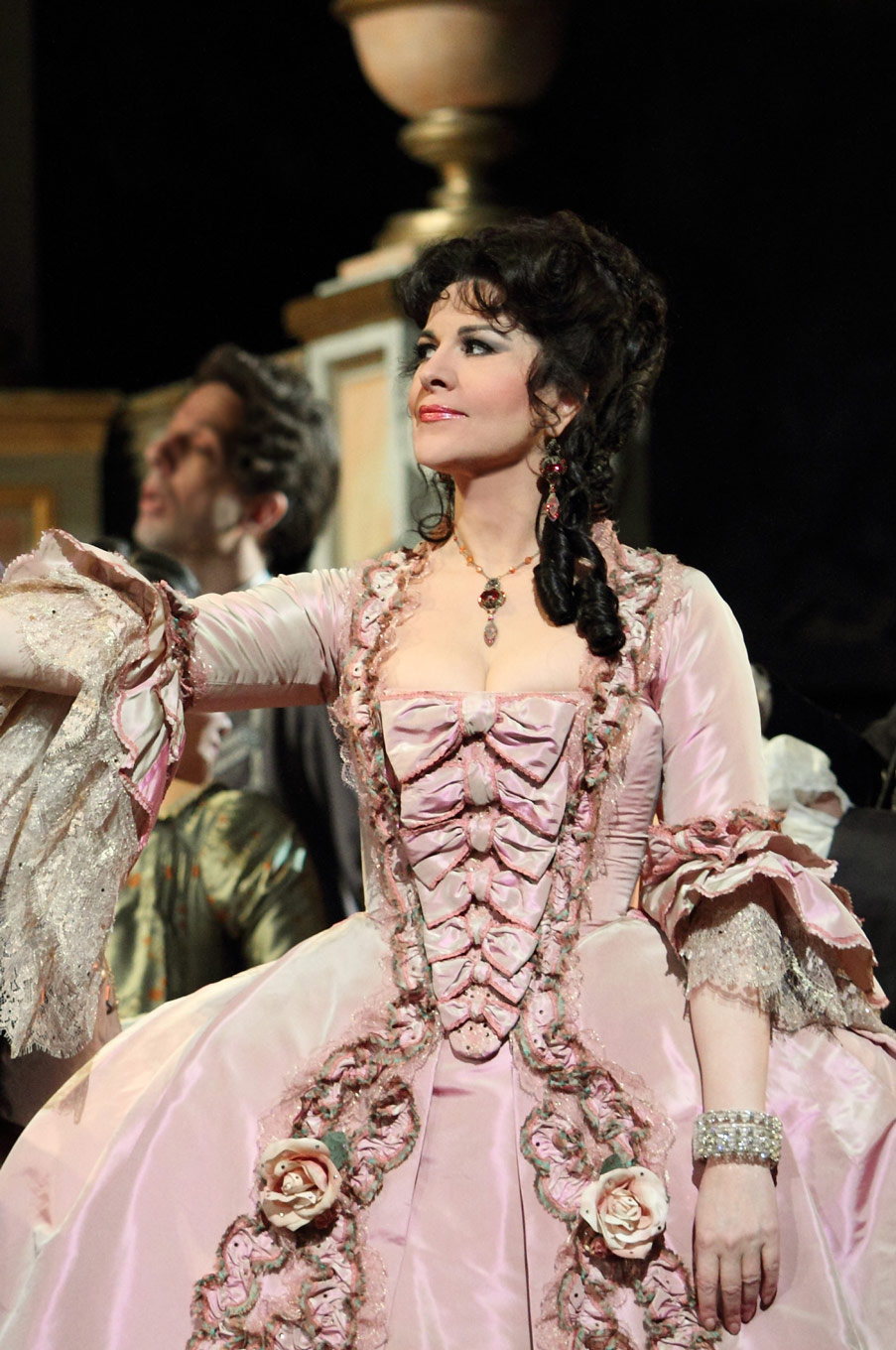
In the 25th year since her debut at the Royal Opera, Angela Gheorghiu seemed totally at home as Adriana. The meta, show-within-a-show story allowed Gheorghiu to be a quintessential artist in the role; the seriousness with which she approaches her work, and the high stakes at which she lives her life - Adriana and Angela seemed one and the same. Her voice is in fine form, with a soft warmth and elastic legato. Heightened as her story may me, Angela’s Adriana was a real person.
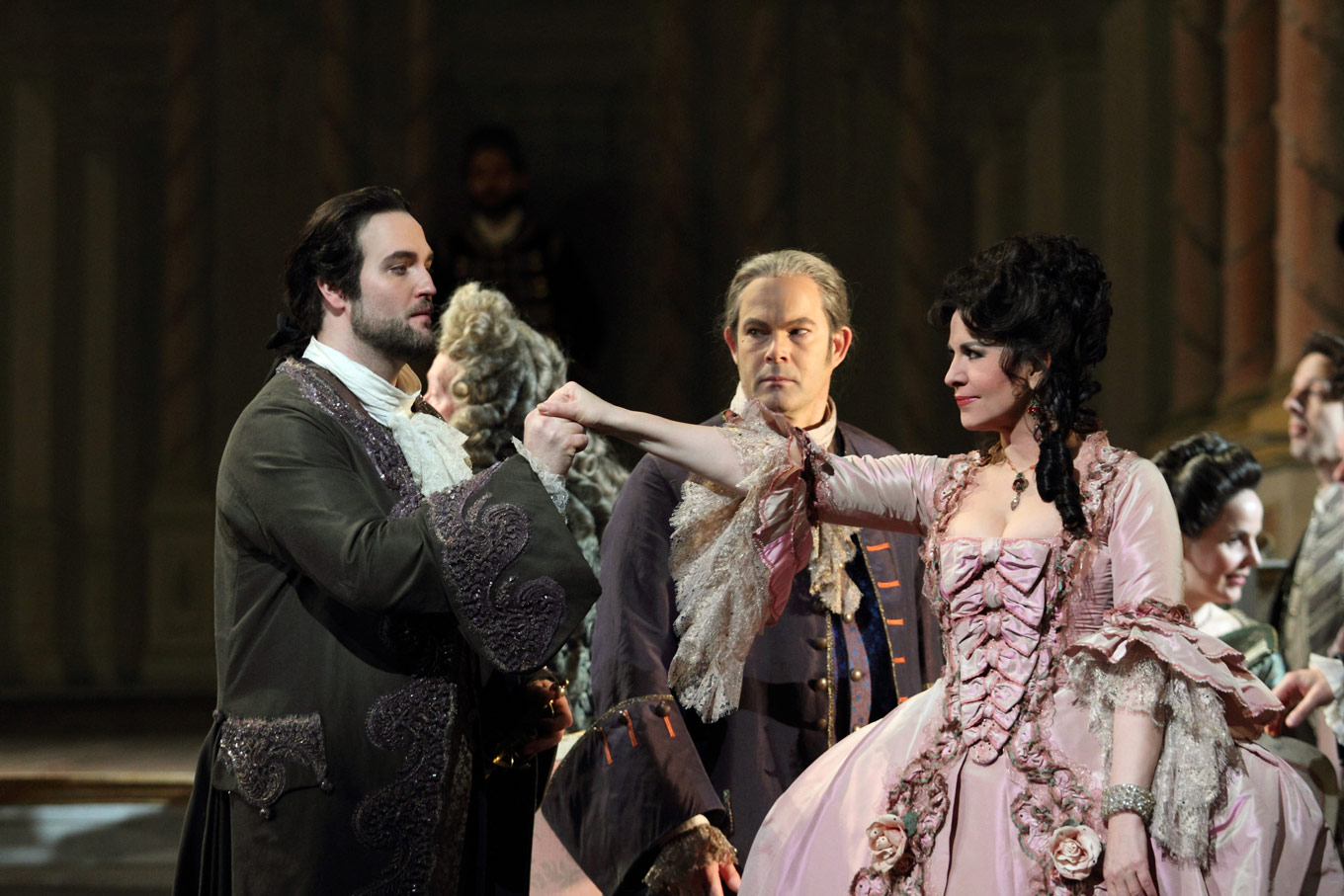
Gerald Finley makes his role debut as Michonnet, the stage manager hopelessly friend-zoned by Adriana. His sound is unfailingly beautiful, and as Michonnet, he seemed particularly endearing and pitiable. Though it’s true that cowardly men rarely get their way in opera, Finley kept Michonnet a class act, with truly good intentions.
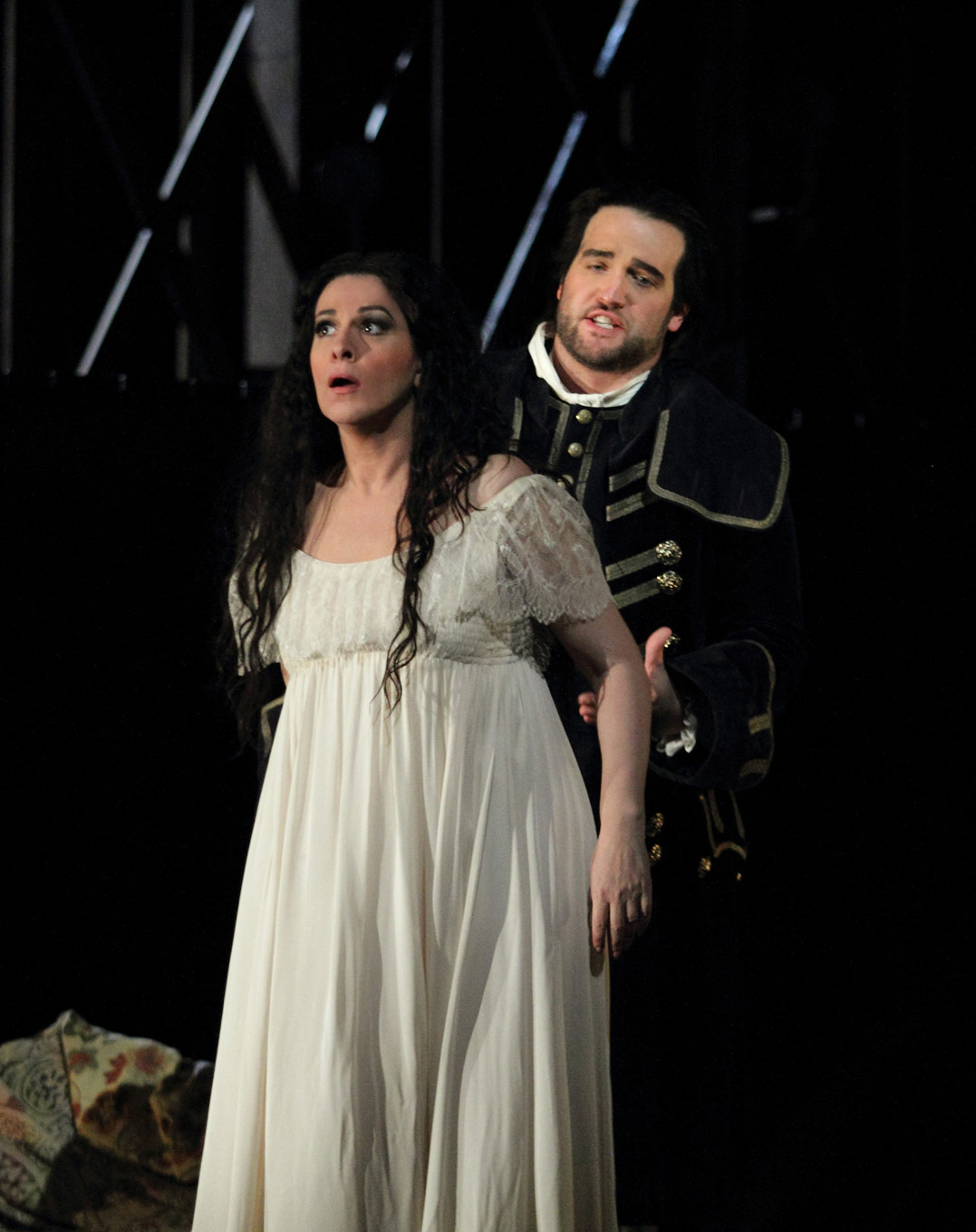
In his role debut as Maurizio, Brian Jagde was a total standout performance. An athletic, strapping Count, Jagde had all the virile charisma that actor-types love. His sound was a throaty, grounded tenor with unreal beauty, and he wisely chose a handful of moments to show almost impossible volume. With Gheorghiu, Jagde created an honest relationship between Maurizio and Adriana. They had chemistry and respect for each other, reminiscent of Tosca and Cavaradossi. The show truly seemed to go to Jagde; we can’t wait for our next chance to hear him.
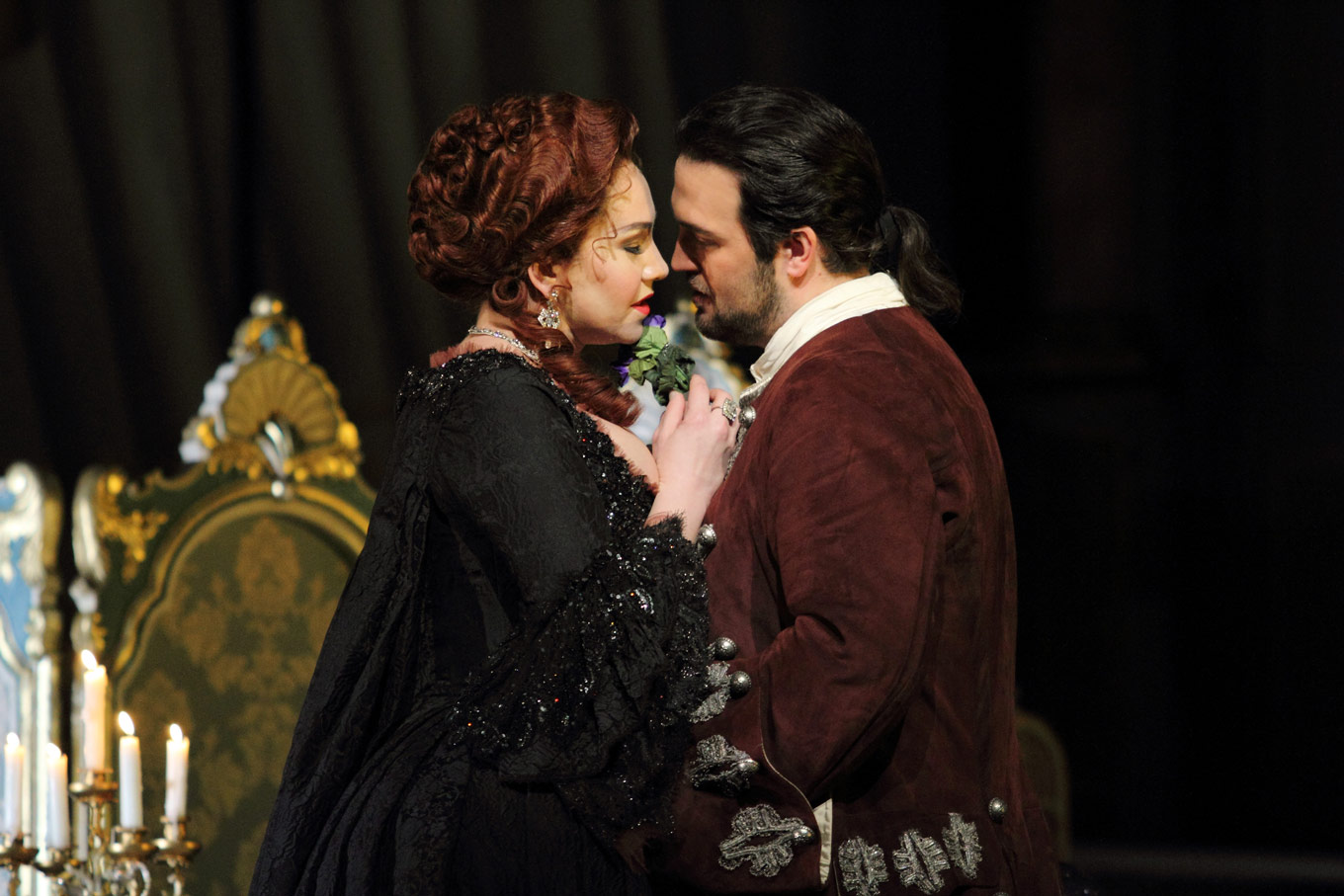
Also stunning is Ksenia Dudnikova as the Princesse de Bouillon, in both a role debut and her first performance with the Royal Opera. Cilea’s unforgiving score was no match for her enormous range, full of power. Dudnikova made more than a villain out of the Princesse; we seemed to hear the noble woman’s building desperation as she becomes threatened by Adriana.
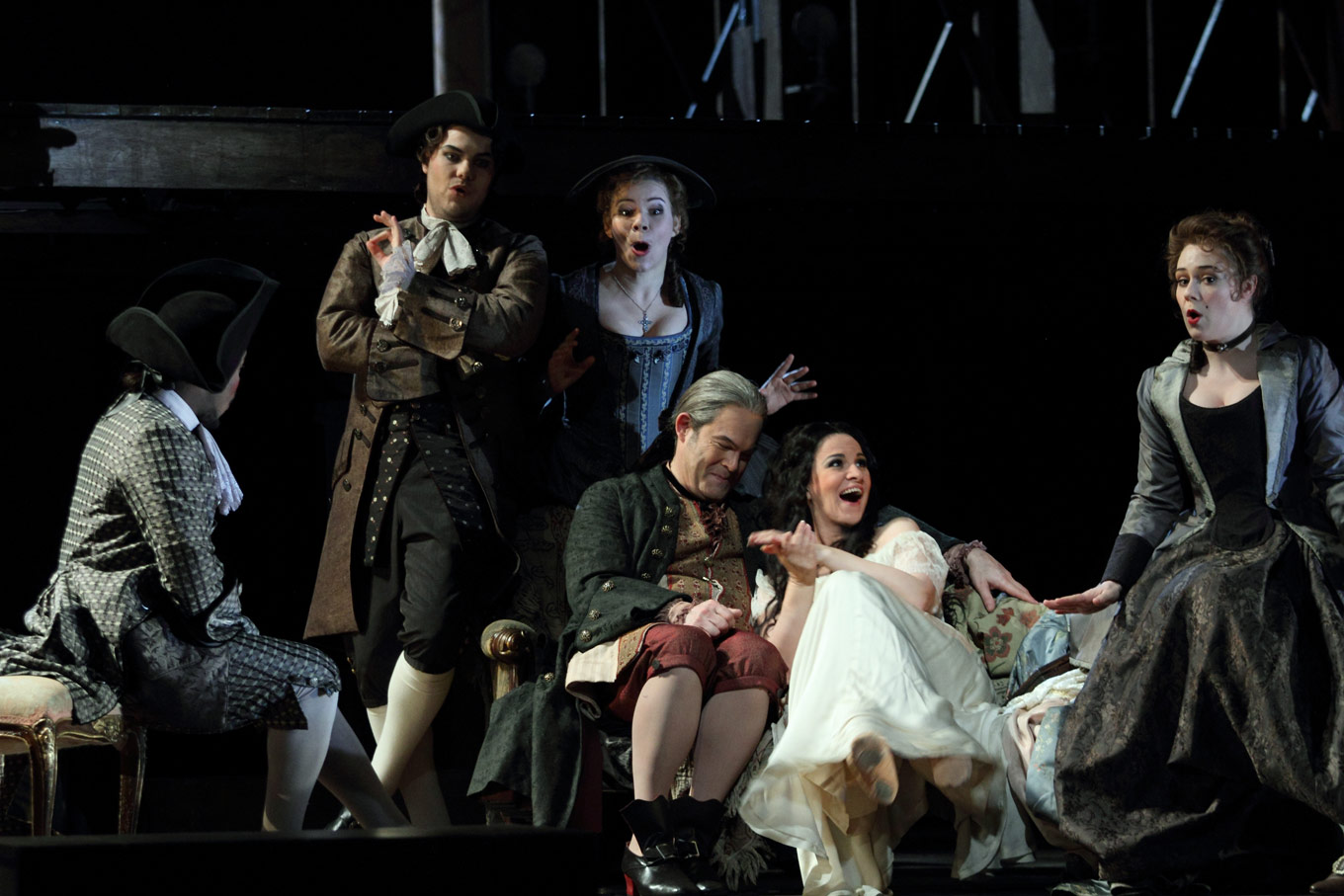
Polish tenor Krystian Adam and Hungarian bass Bálint Szabó were a fantastic comprimario pair as Abbé de Chazeuil and the Prince de Bouillon; they added some merciful comic relief throughout the show, and helped create the frenzied, high-paced world of theatre and mistresses. Jette Parker Young Artists Vlada Borovko, Angela Simkin, Thomas Atkins and Simon Shibambu were full of life and personality as Mademoiselles Jouvenot and Dangeville, and as Poisson and Quinault. Simkin in particular becomes more and more impressive each time we hear her; there was an exciting similarity between her rich mezzo and the powerful pipes of Dudnikova as the Princesse.
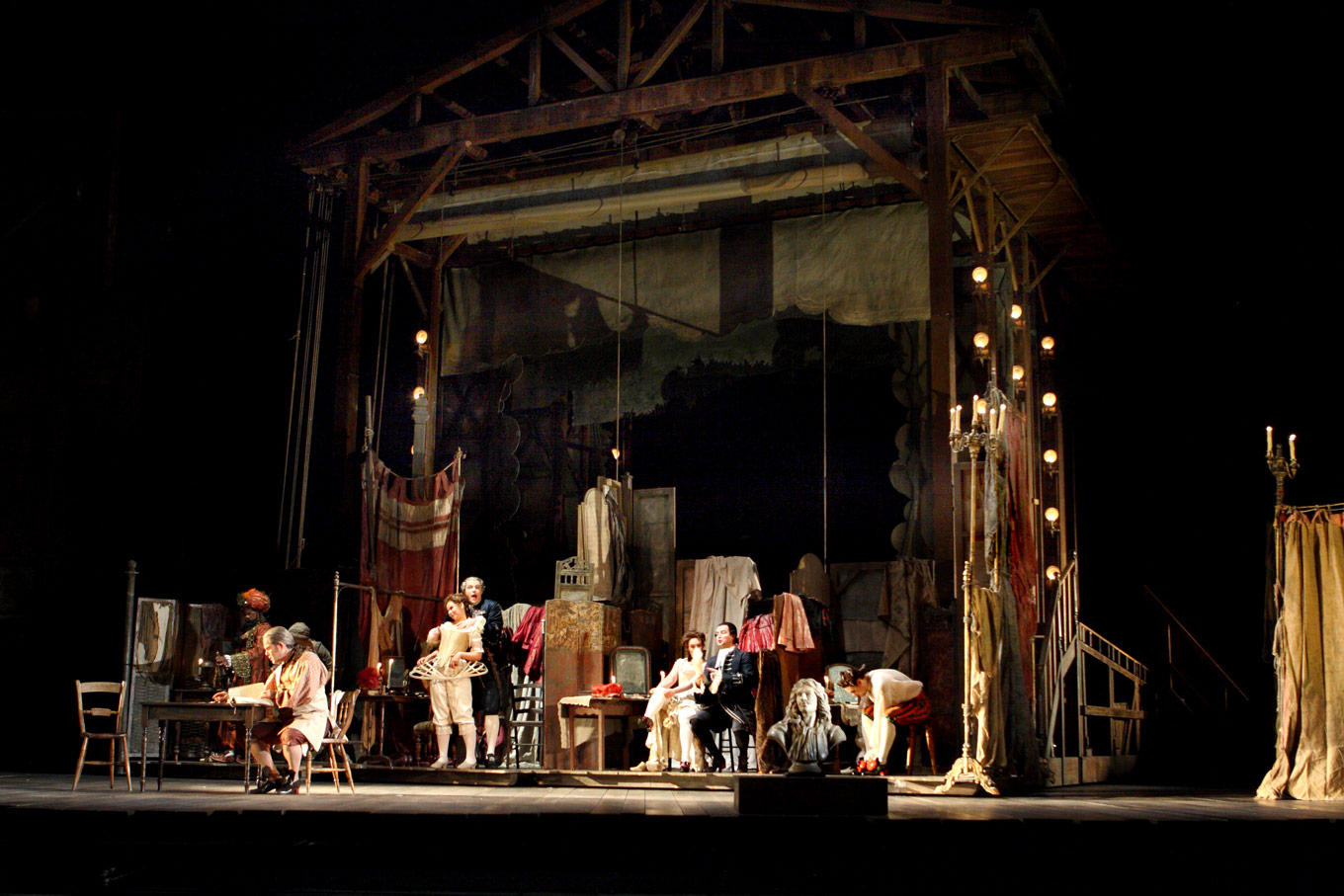
The Orchestra of the Royal Opera House sounded malleable and lively under Israeli conductor Daniel Oren. He seemed to encourage real listening in the pit, handing over the reigns to the singers when it mattered most. It’s almost a shame when the orchestra goes unnoticed, like a film soundtrack, but with Cilea, it’s a job well done.
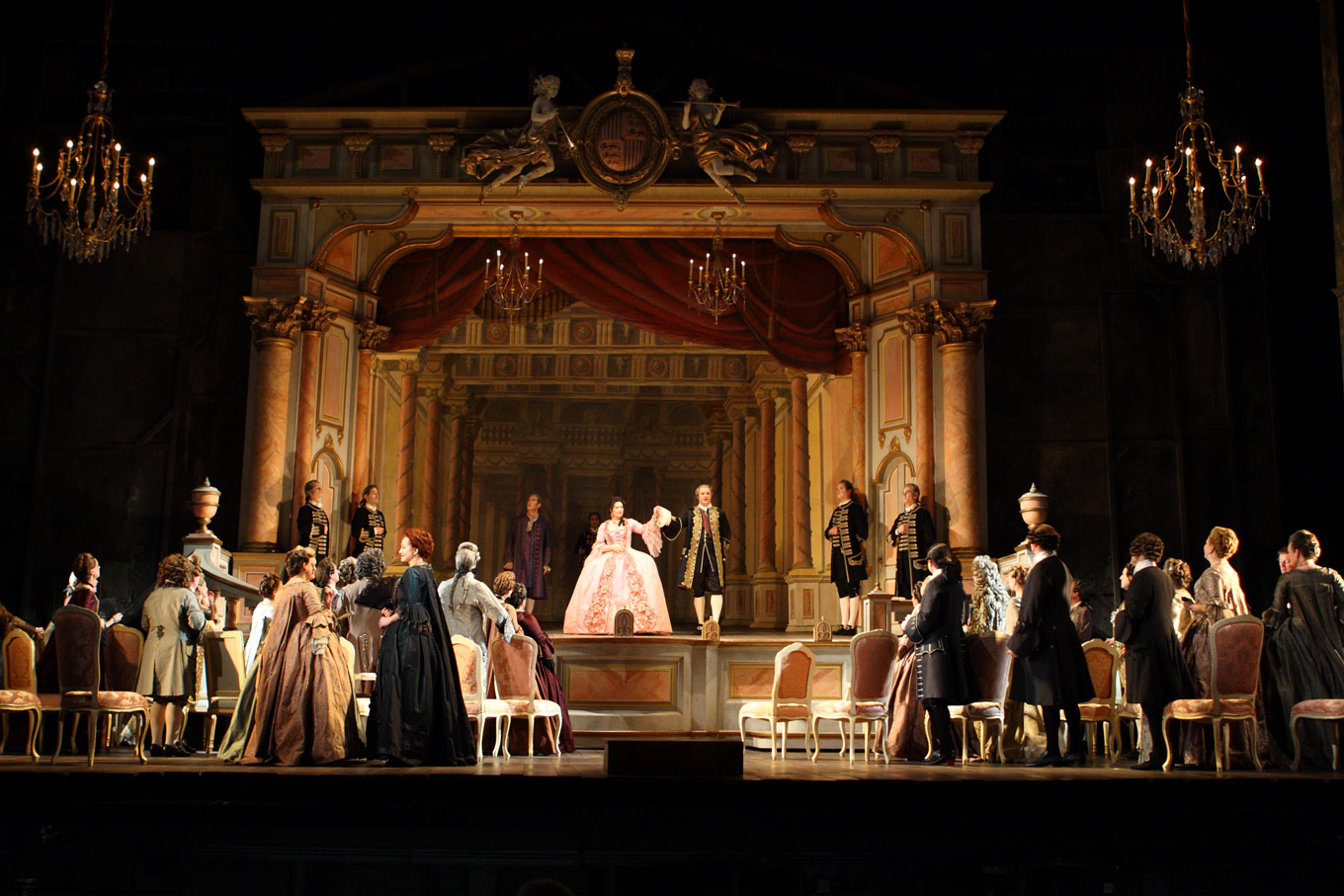
Adriana Lecouvreur offers a rich evening of excellent singing and organic opera. It’s absolutely one to see, if only for the brilliance of Jagde and Dudnikova. Performances run until March 2, with Armenia soprano Hrachuhí Bassénz singing the title role on February 21 and March 2. For details and tickets, click here.


Comments